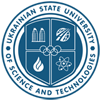Artificial Intelligence and Machine Learning Algorithms for Assessing the Authenticity of a Scientific Article in Scopus: Translator's Experience
DOI:
https://doi.org/10.15802/unilib/2022_270630Keywords:
cross-language plagiarism, university libraries, academic paper in the Ukrainian language, Scopus, Microsoft Office 365 software, translation from Ukrainian into EnglishAbstract
Objective. This paper examines ways to solve the problem of cross-language plagiarism in scientific works written in Ukrainian, which are to be translated and published in English. Considering that Ukrainian university libraries are directly involved in the practices of improving the level of awareness of lecturers and scientists, as well as their support of a large number of new digital tools, we draw attention to the emergence of new opportunities in the practices of supporting academic integrity. Methods. Big Data mining techniques and analysis of algorithms underlying machine translation software were employed to identify the cases of cross-language plagiarism in scientific articles originally written in the Ukrainian language. Results. Based on the analysis of 4000 translated manuscripts, it was established that the standard Microsoft Word 2022 software, typically used to write an article, identifies with a very high accuracy those parts of the text that had been earlier published and stored in a digital format. Conclusions. With the advent of Microsoft Office 365 software (released in 2022), it becomes possible to check any article originally written in Ukrainian or Russian, while being translated into English, for similarities with previously published academic papers. This allows for an instantaneous correction check that may prove useful in preventing the intended or unintended occurrence of cross-language plagiarism in scientific papers. It is advisable to more actively involve librarians of Ukrainian universities in using the powerful potential of digital support for the research activities of their users, including writing papers and checking them for signs of plagiarism.
References
Alaa, Z., Tiun, S., & Abdulameer, M. (2016). Cross-language plagiarism of Arabic-English documents using linear logistic regression. Journal of Theoretical and Applied Information Technology, 83(1), 20-33. Retrieved from http://www.jatit.org/volumes/eightythree1.php (in English)
Google Developers. (2022). Help Google choose the right canonical URL for your duplicate pages. Google Search Central. Retrieved from https://developers.google.com/search/docs/crawling-indexing/consolidate-duplicate-urls?hl=en&visit_id=638031636483722597-103696988&rd=1 (in English)
Hattab, E. (2015, December). Cross-language plagiarism detection method: Arabic vs. English. Proceedins of 2015 International Conference on Developments of E-Systems Engineering (DeSE) (pp. 141-144). Dubai, United Arab Emirates. doi: https://doi.org/10.1109/DeSE.2015.25 (in English)
Horst ter, J. (2022). Why is it important to prevent duplicate content? Retrieved from https://www.seoreviewtools.com/duplicate-content-checker/#:~:text=As%20mentioned%20above,and%20search%20results (in Enlish)
IEEE [web-site]. (2022). Retrieved from https://www.ieee.org/publications/rights/plagiarism/plagiarism.html (in English)
Microsoft [web-site]. (2022). Retrieved from https://www.microsoft.com/uk-ua/
Ouriginal. (2021). What is cross-language plagiarism? Retrieved from https://www.ouriginal.com/cross-language-plagiarism-and-challenges/ (in English)
Plagiarism in Research [web-site]. (2020). Retrieved from https://www.editage.com/insights/does-a-plagiarism-checker-work-for-plagiarism-between-different-languages (in English)
Pryimak, D. М. (2019). Vtorynnist i plahiat yak peredumovy nyzkoi yakosti inshomovno-ukrainskykh slovnykiv (na materiali anhliisko-, frantsuzko- ta italiisko-ukrainskykh vydan) [Lack of originality and plagiarism as preconditions of Ukrainian bilingual dictionaries’ inferior quality (a study of English-, French-, and Italian-Ukrainian dictionaries)]. Visnyk Kyivskoho natsionalnoho linhvistychnoho universytetu. Seriia Filolohiia, 22(1), 123-152. doi: https://doi.org/10.32589/2311-0821.1.2019.170210 (in Ukrainian)
Rohrich, R. J., & Sullivan, D. (2009). Plagiarism and dual publication: review of the issues and policy statement. Plastic and Reconstructive Surgery, 124(4), 1333-1339. doi: https://doi.org/10.1097/prs.0b013e3181b59d42 (in English)
Verkhovna Rada of Ukraine. (2017). On education: Law of Ukraine. № 2145-VIII. Retrieved from https://zakon.rada.gov.ua/laws/show/en/2145-19#Text (in English)








